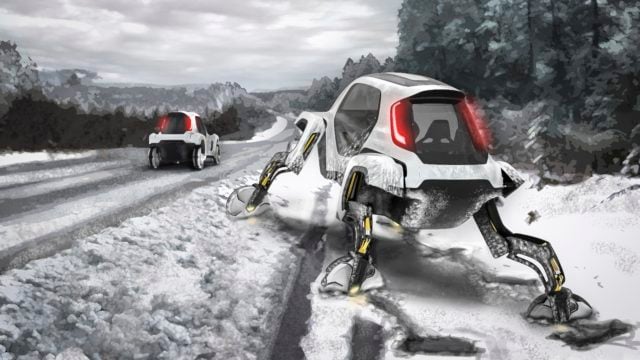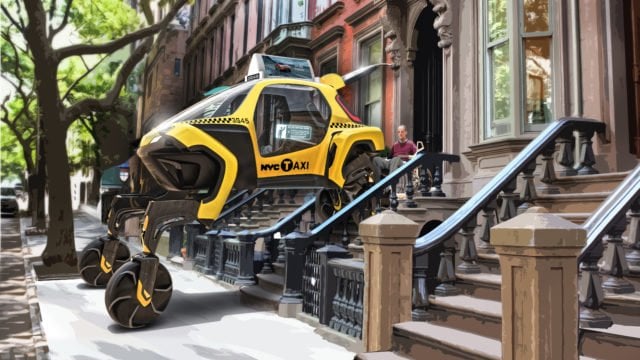-
 chevron_right
chevron_right
Hyundai and Kia completely rethink the EV drive unit with Uni Wheel idea
news.movim.eu / ArsTechnica · Friday, 1 December - 15:46
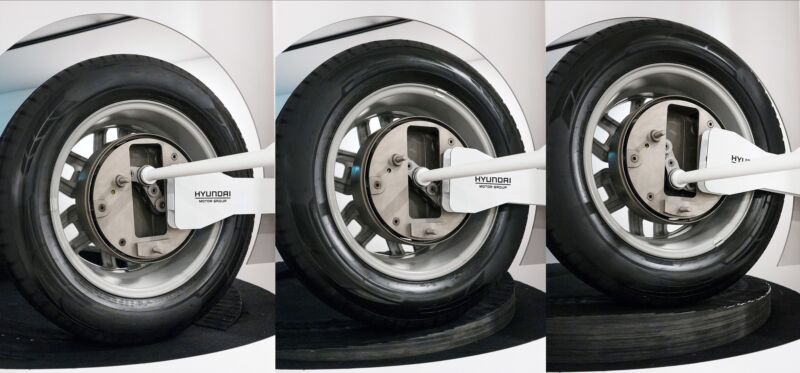
Enlarge / This image shows the Uni Wheel concept in three different stages of articulation. (credit: Hyundai)
We like weird new engineering ideas here at Ars, and today we have a particularly interesting one in the realm of electric cars. It's called the Uni Wheel, and it has been designed by Hyundai and Kia as a way to revolutionize the layout of an EV powertrain to more efficiently use space. In fact, the automakers say it's not just for cars—the new drive system works with wheel sizes as small as four inches to as large as 25 inches.
For EV enthusiasts of a certain bent, there's something a little inefficient about the way virtually every EV powertrain is laid out.
Not the battery in the middle, though—while it's bulky and raises the overall height of EVs, it makes sense for weight distribution, although people working on structural carbon-fiber batteries have some different ideas about that. The problem is the EV drive unit, a bulky thing that contains the electric motor, some gearing, and usually some power electronics. These take up room between the axles and have to be packaged around.

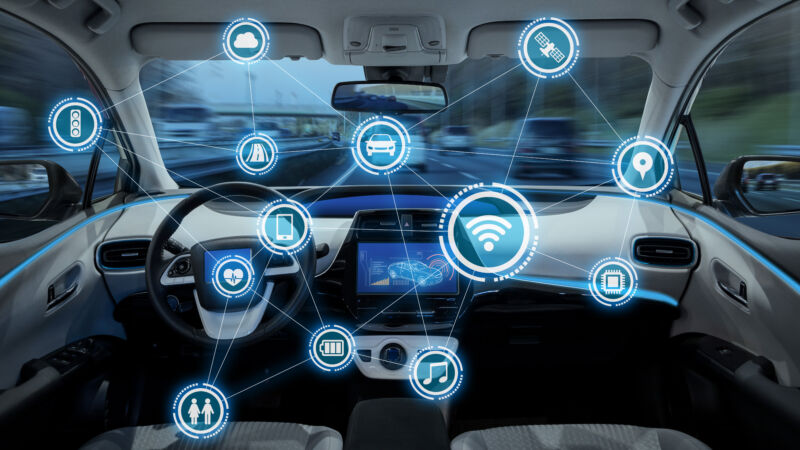
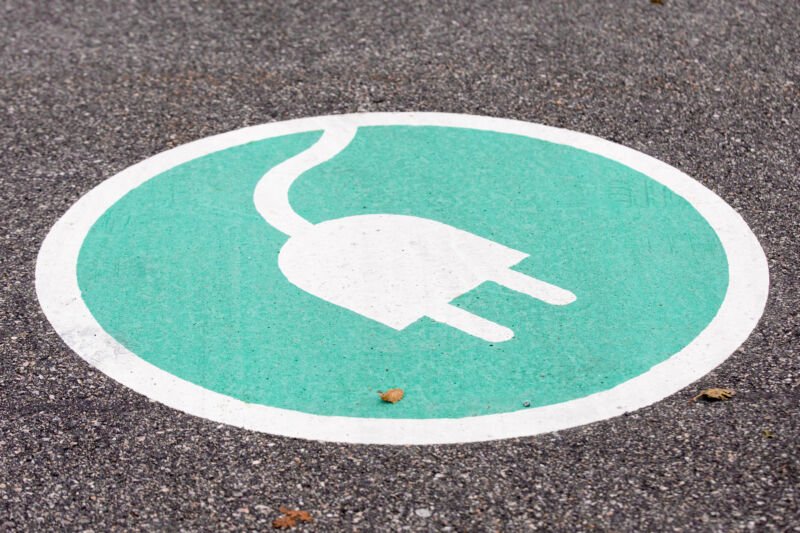
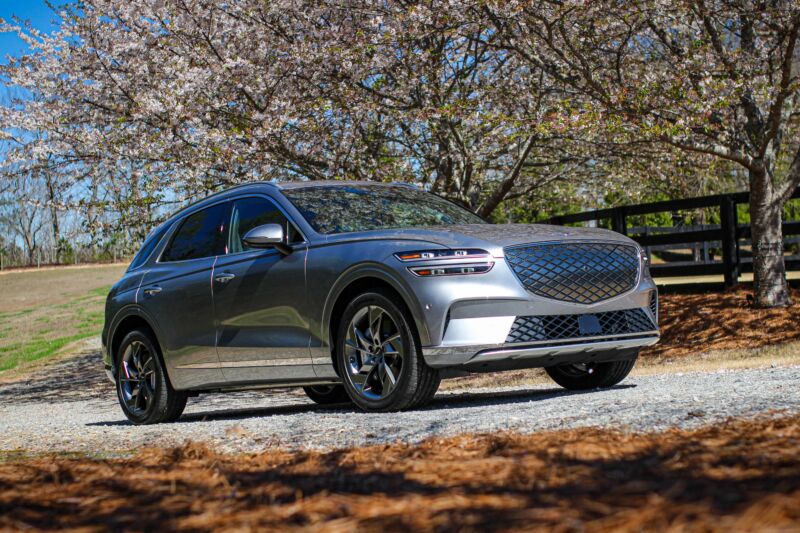
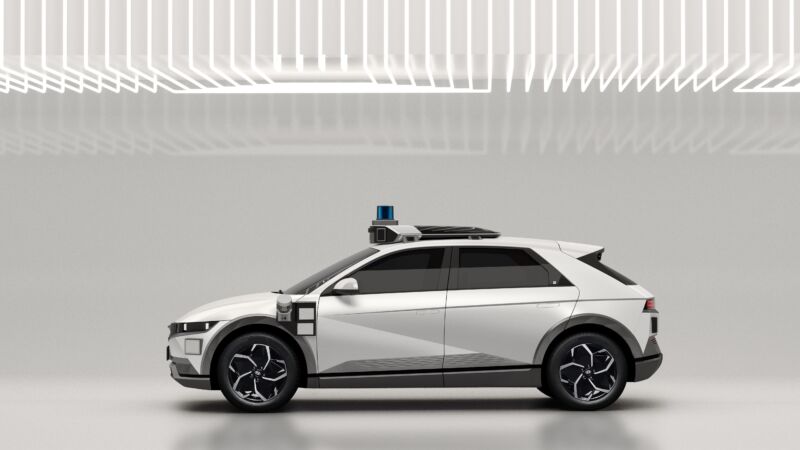

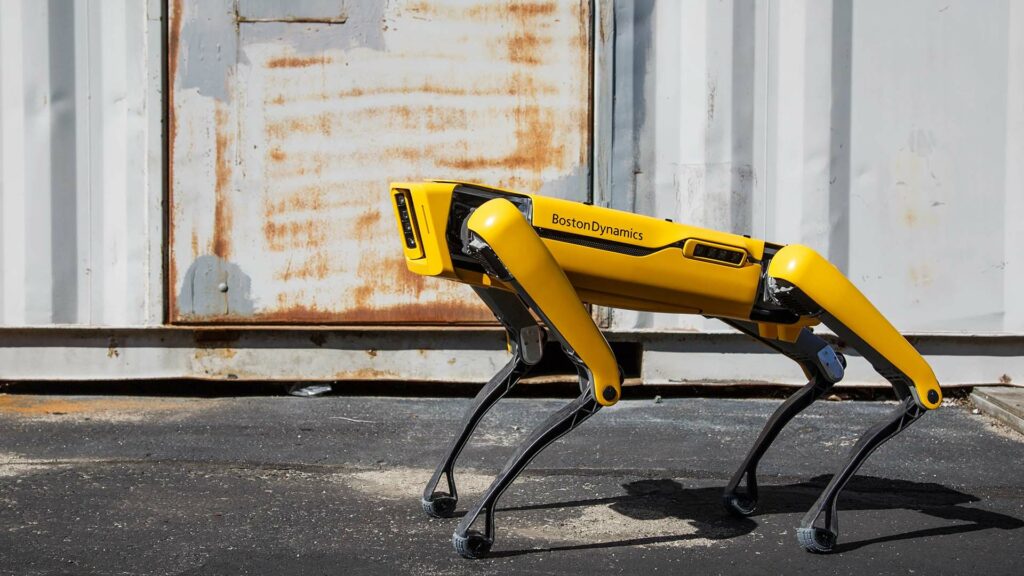
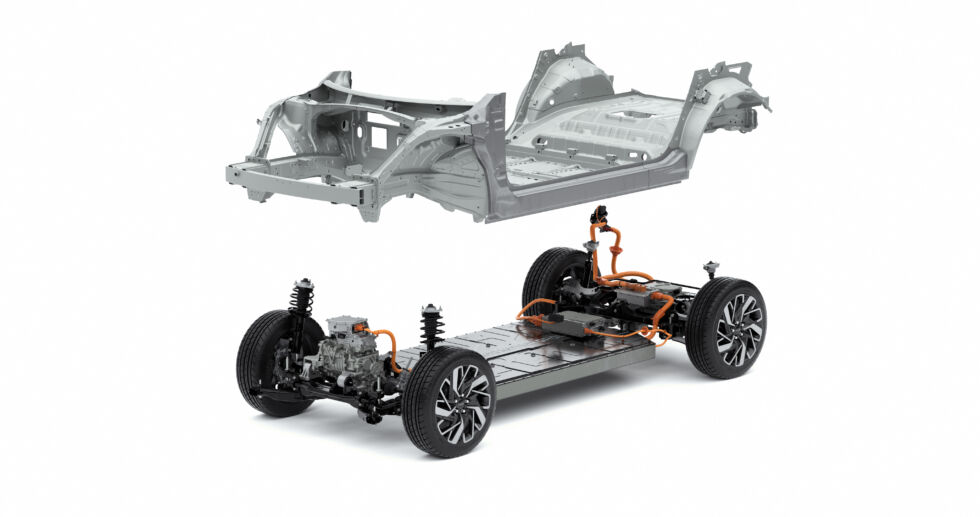
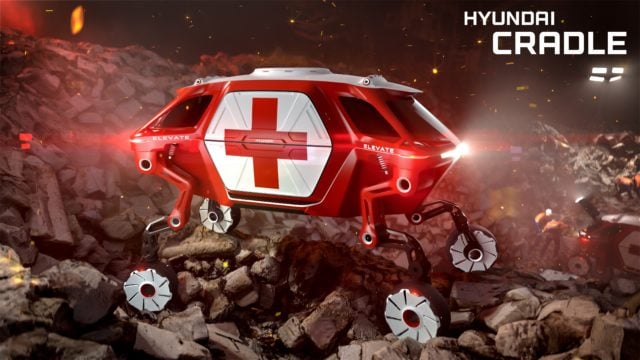 Crédit : Hyundai
Crédit : Hyundai